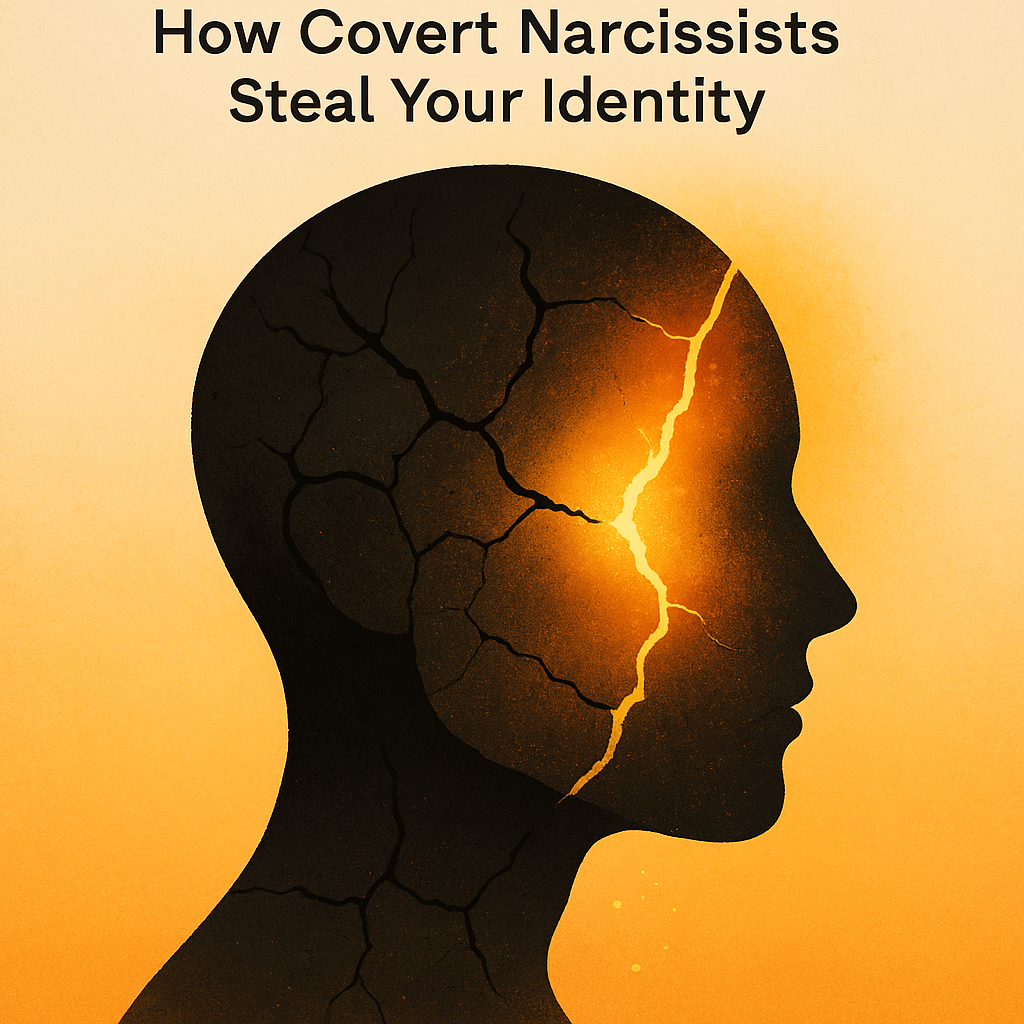
The Erosion of Self: How Covert Narcissists Steal Your Identity
Share
The Erosion of Self: How Covert Narcissists Steal Your Identity
By Festus Joe Addai
Covert narcissistic abuse isn’t just about controlling your actions — it’s about dismantling your very sense of self. Over time, you lose not just your confidence, but your core identity.
You don't even recognize the person you’ve become. And that's exactly what they want.
"Covert narcissists don't just break hearts — they rewrite minds."
The Subtle Disassembly of Your Identity
It doesn't happen all at once. It happens slowly, piece by piece, through a series of tiny betrayals and manipulations:
- They undermine your choices ("Are you sure that's a good idea?")
- They question your perceptions ("You're too sensitive.")
- They distort your emotions ("You always overreact.")
- They isolate your support system ("They don't really care about you like I do.")
Every interaction is a thread pulled from the fabric of your identity. Until finally, you don’t know what you think, feel, or want without their input.
Signs Your Identity Is Being Eroded
If you're trapped in this cycle, you might notice:
- Indecision and constant second-guessing.
- Chronic feelings of inadequacy or guilt.
- Fear of expressing personal preferences or desires.
- Loss of hobbies, interests, and dreams once important to you.
- Becoming a "chameleon" to avoid conflict.
You become a shell of yourself, constantly adapting to their moods and needs — while your own needs are erased.
"You are not weak. You were systematically dismantled by design."
Why Covert Narcissists Steal Identity
Stealing your identity grants them two powerful outcomes:
- Control: A person with no center is easier to dominate.
- Supply: They feel powerful watching you diminish under their influence.
It’s not accidental. It's a targeted erosion to serve their ego and survival instincts.
Rebuilding After Identity Theft
Healing means taking back what was stolen — piece by piece, decision by decision:
- Relearn your preferences without seeking permission.
- Rebuild your values based on your authentic self, not their distorted version.
- Surround yourself with people who affirm your worth, not those who question it.
- Seek therapy or coaching specialized in narcissistic abuse recovery if possible.
You don’t need to become who you were before — you can become someone stronger, wiser, and more sovereign than ever.
"Healing isn’t about going back to who you were. It's about becoming who you were always meant to be — free."
Video credit: This content was created by the Mamisotrue and is featured here as part of our curated series on covert narcissism. All rights belong to the respective owner.
Access All Blogs Here

